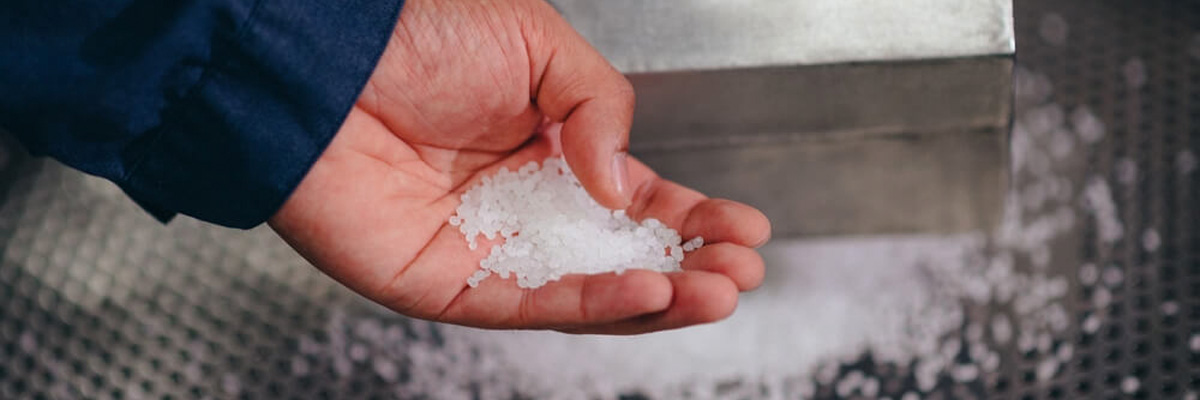- info@abkunststoff.de
- Wuppertaler Strasse 79, 45549 Sprockhövel, Deutschland
What is Polystyrene (PS)?
Polystyrene (PS) is a solid and transparent plastic raw material made by polymerization of styrene monomer. Polystyrene is a thermoplastic polymer that softens when heated and can be converted into semi-finished products such as films, plates, and many many finished products. It is in the top five in the list of the most used plastic raw materials for general purposes in the world. In the plastic industry; It is preferred because of its transparency, good processing, fluidity, food compatibility and many other properties.
Polystyrene is a polymer produced from monomer styrene by polymerization and is obtained from petroleum. At Room Temperature, Polystyrene Is A Solid State Thermoplastic, Melted At High Temperatures While Processing By Injection Or Extrusion.
Polystyrene can be in rigid or foam form. When it comes to polystyrene, more foam forms come to mind. Although polystyrene foam is solid at room temperatures, it is in a molten state when processed at high temperatures. After processing, it is cooled again and becomes a solid. Polystyrene foams are generally durable up to 70 °C. In addition, polystyrene in the form of foam, which has an extremely hard, shiny and brittle structure after cooling, is the most suitable and economical material among insulation materials. Moreover, it is generally preferred because it helps to provide isolation in an extremely efficient way. Polystyrene foam insulation material burns quickly and spreads a very intense gas smell around it. In addition, in environments with acetone, it also causes swelling very quickly. Most importantly, it is protected against sun rays, water, impacts, etc. It is extremely resistant to all adversities. Since it can resist all these negativities, it is preferred for exterior thermal insulation.
Polystyrene (PS) Properties
Polystyrene (PS) is a synthetic, aromatic polymer derived from styrene monomer, a liquid petrochemical. Polystyrene can be rigid or foamed. General purpose polystyrene is clear, hard and brittle. It is a resin with a very cheap unit weight. It is extremely poor at holding oxygen and water vapor, and its melting point is also relatively low. Polystyrene can be naturally transparent, but can be colored by adding colorant.
Where is Polystyrene (PS) Used?
Polystyrene (PS), obtained as a result of the polymerization of styrene, is a type of thermoplastic with a wide range of uses. Polystyrene (PS) is classified as Antishock (HIPS), Crystal (GPPS) and Foam (EPS) according to the way it is processed. Polystyrene (PS) is used in many industries as a substitute for paper, wood and metals because it is extremely easy and economical to process. It is widely used in areas such as film and plate making, paper and fabric coatings, insulation boards, lighting materials, refrigerator-washing machine parts, battery boxes, radio and television cases, toys and household goods. It can be used in Polystyrene Foam Form, Installations, Interior and Exterior Insulations, Inside Pipes, Cooling Towers, Food Packaging, Car Parts, Some Parts of Electronic Devices and Appliances.
Packaging:
Eggs and dairy products, meat, fish and poultry, cold drinks or packaged meals. All of these products do not spoil when securely packaged with polystyrene packaging materials. When good packaging, refrigeration and transportation practices are applied together in Western society, only two percent of the food is spoiled and wasted, while this rate is 50 percent in developing countries. Polystyrene has proven to be a versatile and cost-effective solution for packaging and disposable food packaging, no matter what's inside your product packaging.

